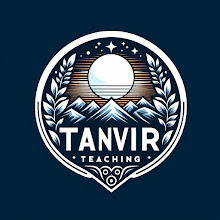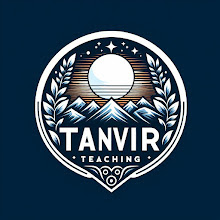Charting New Horizons: Unraveling the Expansive Impact of the AI Revolution on Education and Development
In the ever-shifting landscape of technological progress, artificial intelligence (AI) emerges as a formidable catalyst, transcending boundaries and permeating various sectors. Among the domains witnessing a profound metamorphosis, education and development stand as the crucible where innovation meets societal growth. This seismic shift not only promises unprecedented advancements but also poses novel challenges. Let's embark on an exhaustive exploration, peeling back the layers to unravel the multifaceted dimensions of the AI revolution and its intricate influence on education and development.
The
Cognitive Renaissance in Education:
1.
Personalized Learning Journeys:
Artificial intelligence, armed with extensive datasets and cutting-edge algorithms, is revolutionizing education through personalized learning journeys. These tailored approaches move beyond the constraints of traditional teaching methods, honing in on the unique strengths and weaknesses of each student. Adaptive curricula, dynamically evolving with individual progress, not only optimize comprehension but also cultivate a sense of ownership and engagement in the learning process. By recognizing and adapting to diverse learning styles, AI creates an educational ecosystem that fosters a lifelong love for learning.
2.
Intelligent Tutoring Systems:
The era of one-size-fits-all tutoring is giving way to AI-driven tutoring systems, underpinned by sophisticated machine learning algorithms. These systems provide real-time feedback and assistance, tailoring their support to accommodate the diverse learning styles of students. The result is not only an augmentation of academic performance but also the cultivation of a culture of continuous improvement. Each student becomes empowered to unlock their full potential, supported by AI tutoring systems that adapt to their unique needs and challenges.
3.
Augmented Reality in Education:
AI introduces immersive experiences through augmented reality (AR), revolutionizing the way students engage with educational content. Virtual simulations and interactive experiences transcend the boundaries of traditional textbooks, providing a hands-on approach to learning. The integration of AR in education fosters practical understanding, preparing students for a future where adaptability and creativity are paramount. This shift towards experiential learning not only enhances educational outcomes but also aligns with the demands of a rapidly evolving global landscape.
4. Gamification of Learning:
AI brings an innovative approach to education through gamification. By incorporating game elements into the learning process, students are not only motivated but also engaged in a more interactive and enjoyable manner. AI algorithms analyze student progress, adjusting the level of difficulty and content to maintain an optimal balance between challenge and achievement. Gamification proves to be a powerful tool in enhancing retention, collaboration, and problem-solving skills, preparing students for the complexities of the real world.
Bridging Gaps in Global Development:
5.
AI for Inclusive Education:
The transformative power of AI extends beyond borders, holding the potential to address global educational disparities. Virtual classrooms, language translation powered by AI, and accessibility tools ensure that education becomes an inclusive right, reaching even the most marginalized communities. The democratization of education through AI stands as a beacon of hope, breaking down longstanding barriers and creating a more equitable world. In essence, AI becomes a catalyst for global inclusivity, providing opportunities for education to transcend geographical and socio-economic constraints.
6.
Precision in Development Initiatives:
AI's analytical prowess extends its reach to the development sector, ushering in an era of precision and efficiency. Policymakers can leverage AI to craft targeted strategies, optimizing resource allocation and maximizing societal benefit. Whether it's in healthcare, infrastructure, or social welfare, AI assists in identifying key areas for improvement. This data-driven approach transforms the landscape of development initiatives, ensuring that interventions are not only well-informed but also impactful.
7. Sustainable
Development and AI:
In the pursuit of sustainable development goals, AI emerges as a strategic ally. Machine learning algorithms analyze vast datasets to identify sustainable practices, optimize resource utilization, and develop eco-friendly solutions. The fusion of AI and sustainable development opens avenues for innovation, where technology becomes a catalyst for positive environmental change. From smart energy grids to precision agriculture, AI contributes to a more sustainable and resilient future.
8.
Predictive Analytics for Educational Planning:
AI's predictive analytics capabilities play a pivotal role in educational planning. Institutions can harness data to forecast student performance trends, identify potential challenges, and tailor interventions to address specific needs. Predictive analytics not only enhances academic outcomes but also contributes to efficient resource management within educational institutions, ensuring a more streamlined and effective learning environment.
Challenges on the Horizon:
9. Ethical
Considerations:
As AI becomes deeply embedded in educational landscapes, ethical considerations loom large. Issues related to data privacy, algorithmic bias, and the responsible use of AI in shaping educational content demand meticulous attention. Establishing robust ethical frameworks and guidelines becomes imperative to ensure that the AI-driven educational ecosystem remains fair, transparent, and accountable. Ethical considerations extend beyond the classroom, influencing how AI is developed, deployed, and regulated in the broader context of education and development.
10.
Reskilling and Adaptability:
The rapid evolution of AI necessitates a fundamental shift in the way we approach education. Beyond traditional curricula, there is a pressing need to reskill educators and students alike. Developing a curriculum that incorporates digital literacy, critical thinking, and adaptability is crucial to prepare individuals for a workforce dominated by AI technologies. Continuous learning becomes a cornerstone, with educational institutions and employers collaborating to create pathways for ongoing skill development and upskilling.
Conclusion:
The AI revolution is not a distant wave; it is an omnipresent force reshaping the very foundations of education and development. Embracing the potential benefits while proactively addressing the inherent challenges is pivotal to harnessing the true power of AI in building a brighter and more equitable future. As we stand at the crossroads of technological innovation, it is our collective responsibility to guide the transformative force of AI toward fostering a world where education and development are not only technologically advanced but also truly inclusive and empowering for all. The journey continues, charting new horizons where the synergy between AI and education propels us into a future of unprecedented possibilities.








.jpg)






0 Comments